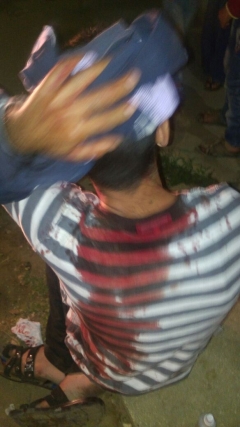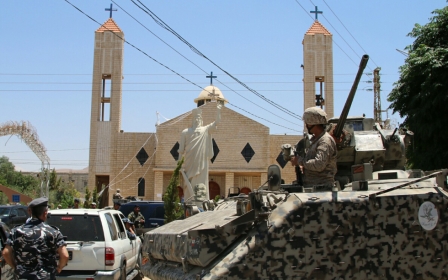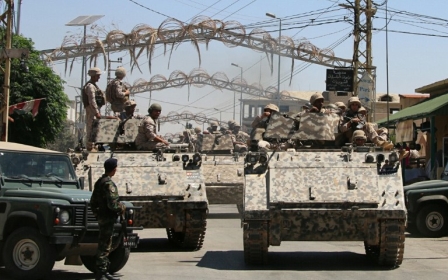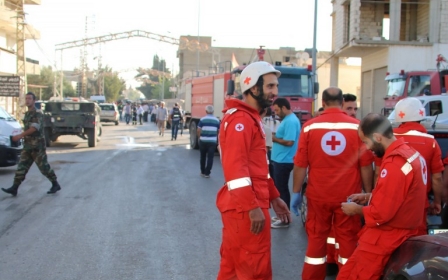Syrians face violence and suspicion in Lebanon after bombings
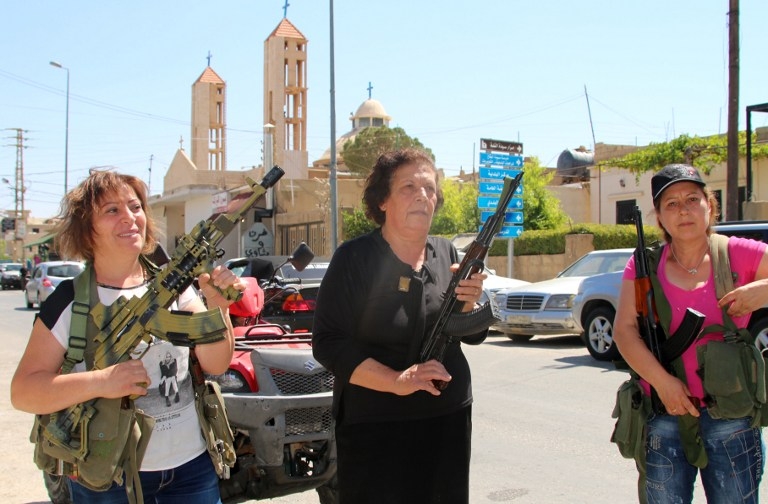
In the early hours of Monday morning, four men with explosives strapped to their bodies walked into the middle of al-Qaa, a predominantly Christian village to the north of Lebanon's Bekaa Valley.
After reportedly raising the suspicions of a local man, the men detonated themselves. Successive blasts targeted those helping the injured.
Five civilians were killed and at least 15 others were injured. That night, several more bombs hit al-Qaa once again.
So far, no one has claimed the attacks, although many suspect that the Islamic State group (IS) was to blame.
Still, the al-Qaa attacks have significantly raised tensions in Lebanon. Previous reports of Lebanese security forces arresting alleged IS sleeper cells in the north had only heightened fears that the militants may soon lash out in Lebanon as they lose territory in Syria and Iraq.
Lebanese security officials warned al-Qaa could be the “harbinger of a wave of terrorist operations,” according to a statement released after meeting Prime Minister Tamim Salaam on Tuesday.
However, while analysts and security officials speculate around the latest violence, the attacks in al-Qaa have already had a palpable impact on Syrian refugees in Lebanon, especially those in the country's north and northeast.
Local officials have begun restricting the movement of refugees in these areas, and more than 200 Syrians have been arrested.
Senior Lebanese politicians blamed Syrians from nearby camps for the bombings in al-Qaa, although Interior Minister Nouhad Machnouk later announced that four of the eight attackers had entered Lebanese territory from Syria itself.
“It is our humane duty to protect the Syrian refugees, however we will never allow them to harm the Lebanese people,” Machnouk said.
Arrests and confiscations
More than 100 Syrians were arrested in Baalbek while nine unlicensed motorbikes and vehicles in their possession were confiscated, the Lebanese army said. Another 120 unregistered Syrian refugees were arrested from a camp in Rayhanieh in northern Akkar, according to local media reports.
In the past, security forces have arrested suspects and seized weapons from inside Syrian refugee camps and settlements in the country’s north. Some suggest that poverty and isolation among refugees provide fertile recruiting ground for Islamic militant groups on the other side of Lebanon’s border with Syria.
And yet with heightened suspicion and incitement following the al-Qaa bombings, Syrians in some areas have faced retaliatory violence.
On Tuesday night, local men violently assaulted Syrians in a Christian village in Kesrouan, Mount Lebanon, the first reported case of reprisals since al-Qaa.
Photographs sent to MEE appear to show the aftermath of a violent assault against Syrian families by local men in Hrajel, a Maronite village in central Lebanon. Young men show signs of vicious beatings, some of them to the head. Bloodied bed sheets line the floor.
According to one of the victims, a group of young men came to a building home to several Syrian families in Hrajel and beat them. Five people were injured.
It is not clear what prompted the attack, although it came the same day that local officials proposed new measures for Syrians living in Hrajel, including restricting freedom of movement, banning vehicles and introducing a daily 10-hour curfew.
This followed calls by foreign minister and leader of Lebanon’s Free Patriotic Movement (FPM) Jebran Bassil to remove the “existence” of Syrian settlements in areas controlled by FPM majors, during a Sunday conference with city leaders.
“The existence of camps and gatherings of Syrian refugees in the hearts of our towns is forbidden,” Bassil said to applause before adding that any such gathering must be “searched” by local police.
This was not the first such attack against Syrian refugees in Lebanon, or the first case of incitement against them. December 2014 saw a spike in attacks against Syrian refugee camps in the north that sometimes proved fatal. Camps were set alight. In one case, gunmen killed a Syrian child and wounded a man in the northeast.
Syrians 'paying the price'
Abu Linda, a Syrian activist living in Beirut, told MEE that Syrians had begun “paying the price” for the attacks in al-Qaa.
“We are refugees and displaced people in Lebanon, and refugees and displaced people have to respect the sovereignty of the state of Lebanon,” he said, condemning the attacks in al-Qaa. “But the Syrians have started paying the price [for al-Qaa] - starting in Hrajel.”
Neil Sammonds, a researcher covering Lebanon and Syria at Amnesty International, called on the Lebanese authorities to ensure that their response to the al-Qaa attacks did not conflict with their international obligations to protect refugees.
“Lebanon must balance its right to protect civilians from attack with its duty to offer sanctuary and assistance to those fleeing war and persecution in Syria. The security measures enacted after the bombings in al-Qaa this week must not punish tens of thousands of Syrian refugees encamped in the area,” Sammonds said.
But some officials in northern Lebanon are already implementing measures to restrict the movement of Syrians in their municipalities.
On Wednesday, the governor of Baalbek-Hermel, Bashir Khodor, called for the “re-organisation” of how Lebanon was treating its Syrian “guests” as he announced a 10-hour curfew from 8pm to 6am during which time refugees are banned from leaving their homes.
Prior to that, Syrians in the area had been banned altogether from going outside in the wake of the al-Qaa bombings, the English-language Daily Star newspaper reported.
A municipal chief in Baalbek also told Lebanese news website Al-Modon that local officials “should take appropriate measures against the Syrians, and young people in particular, because they are exposed to anger and extremist ideas.”
Curfews and similar proposals are not new in Lebanon, although they may gain more currency in the wake of al-Qaa.
In 2014, Human Rights Watch (HRW) reported that at least 45 local municipalities in Lebanon had introduced curfews for Syrian refugees.
According to HRW, some of the curfews were part of various retaliatory measures directed against Syrians following fighting in August 2014 between militant groups operating out of Syria and the Lebanese army in Arsal in the Bekaa Valley.
Several Lebanese soldiers were abducted and executed by Islamic State and Nusra Front militants.
The curfews “restrict refugees’ movements and contribute to a climate of discriminatory and retaliatory practices against them," HRW said at the time, arguing that such curfews were against international law and “appear to be illegal under Lebanese law”.
Nadim Houry, the deputy director for the Middle East and North Africa division at HRW, told MEE that it may be “too early” to assess the impact of the al-Qaa attacks on Syrian refugees in Lebanon.
“Clearly it has increased tensions, hostilities and lack of trust between different communities - between host communities and Syrian refugees - but whether this will be a passing trend … remains to be seen.”
New MEE newsletter: Jerusalem Dispatch
Sign up to get the latest insights and analysis on Israel-Palestine, alongside Turkey Unpacked and other MEE newsletters
Middle East Eye delivers independent and unrivalled coverage and analysis of the Middle East, North Africa and beyond. To learn more about republishing this content and the associated fees, please fill out this form. More about MEE can be found here.


